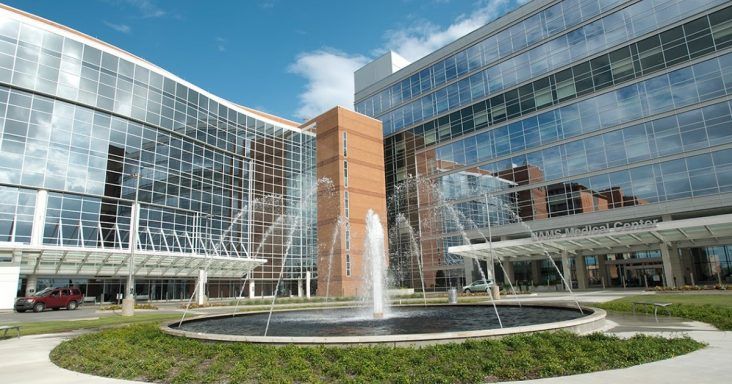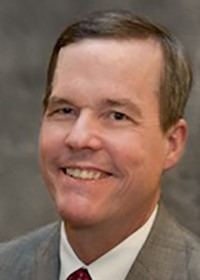New UAMS Chancellor focused on digital health, deeper reach across Arkansas
by July 26, 2018 2:16 pm 958 views

Growing up in Alabama and taking educational and occupational rides through Tennessee, Georgia, North Carolina and New York, new UAMS Chancellor Dr. Cam Patterson considers his new post in Arkansas as a return to his Southern roots.
“In a lot of ways, it’s coming back home,” said Patterson in a recent Talk Business & Politics interview. “I grew up in Alabama and spent most of my career in the South. Was given the opportunity to be the senior executive at one of largest hospitals in the U.S. in New York. It was a great ride, but the call of the south was a strong one. The opportunity to work at a statewide institution, the only academic medical center in the state of Arkansas, being responsible for 3 million people with some challenges, but with a lot of upside opportunity. It was an offer that was too good to turn down.”
A cardiologist by training, the hospital executive will spend his time in a less clinical healthcare setting in his new role. Patterson took the helm at the University of Arkansas for Medical Sciences on June 1 after his selection late last year. Only two months on the job, he’s seen enough to start plotting some definite directions for the medical school/teaching hospital that’s made substantial cuts to its budget and personnel.
“My assessment is that some tough decisions were made over the last year that were probably the culmination of some problems that had existed for awhile. Those tough decisions made by Stephanie Gardner, as the interim chancellor, and the leadership team here were the right decisions to make, as difficult as they were,” he said in reference to layoffs of 600 that helped close a $30 million funding gap earlier this year.

“I think coming out of the financial difficulty, UAMS is in a much stronger position. Our budget for the year that just began this month is balanced for the first time in at least four years. I think it’s a conservative budget. I think there’s more upside than downside. We’ll be back in a growth mode. We’ll be back into thinking about innovation. We’ll be back into thinking about new programs. It was a difficult year, but we’re coming out of this in a strong position,” Patterson said.
The UAMS CEO sees a number of priorities that he’ll focus on early. They include National Cancer Institute designation for its cancer center and growth in the university’s stroke and trauma programs. But Northwest Arkansas – where UAMS has had a campus for a decade – and more community involvement across the state will be pivotal.
“With the population growth in Northwest Arkansas, we need to work with that community to figure out how we take healthcare for the people in Northwest Arkansas to a higher level. I think UAMS needs to be a part of that conversation and part of the answer to that solution. So I think you’ll see a lot more conversation between central Arkansas and Northwest Arkansas as we try to see how we can help elevate their healthcare game in that part of the state,” he said.
“I also think that you’ll see UAMS being more in the community. We currently have eight regional campuses. I would like to see that number increase to about 12 or so over the next few years,” he added. “I’d like to see those regional campuses become more integrated so that we begin to look more like a statewide healthcare system. So that no matter where you go, if you’re looking for UAMS quality care, you’ll be able to find it.”
Telemedicine and technology deployment is another critical space that Patterson expects to address. Reaching more rural areas of the state and optimizing limited resources can transform UAMS’ reach, Patterson said.
“Digital health is going to be a big wave of the future. We will be talking a lot about how UAMS will be a part of bringing the state of Arkansas into the digital health era,” he said. “Improving access, making sure that people have the ability to see physicians without undue hardship, being able to do a lot of the busy work that clinicians do in an efficient way so that they can practice at the top of their license. I think it’s going to be a sea change in healthcare.”
You can watch Dr. Patterson’s full interview, including his comments on the Affordable Care Act and possible changes to it, in the video below.
